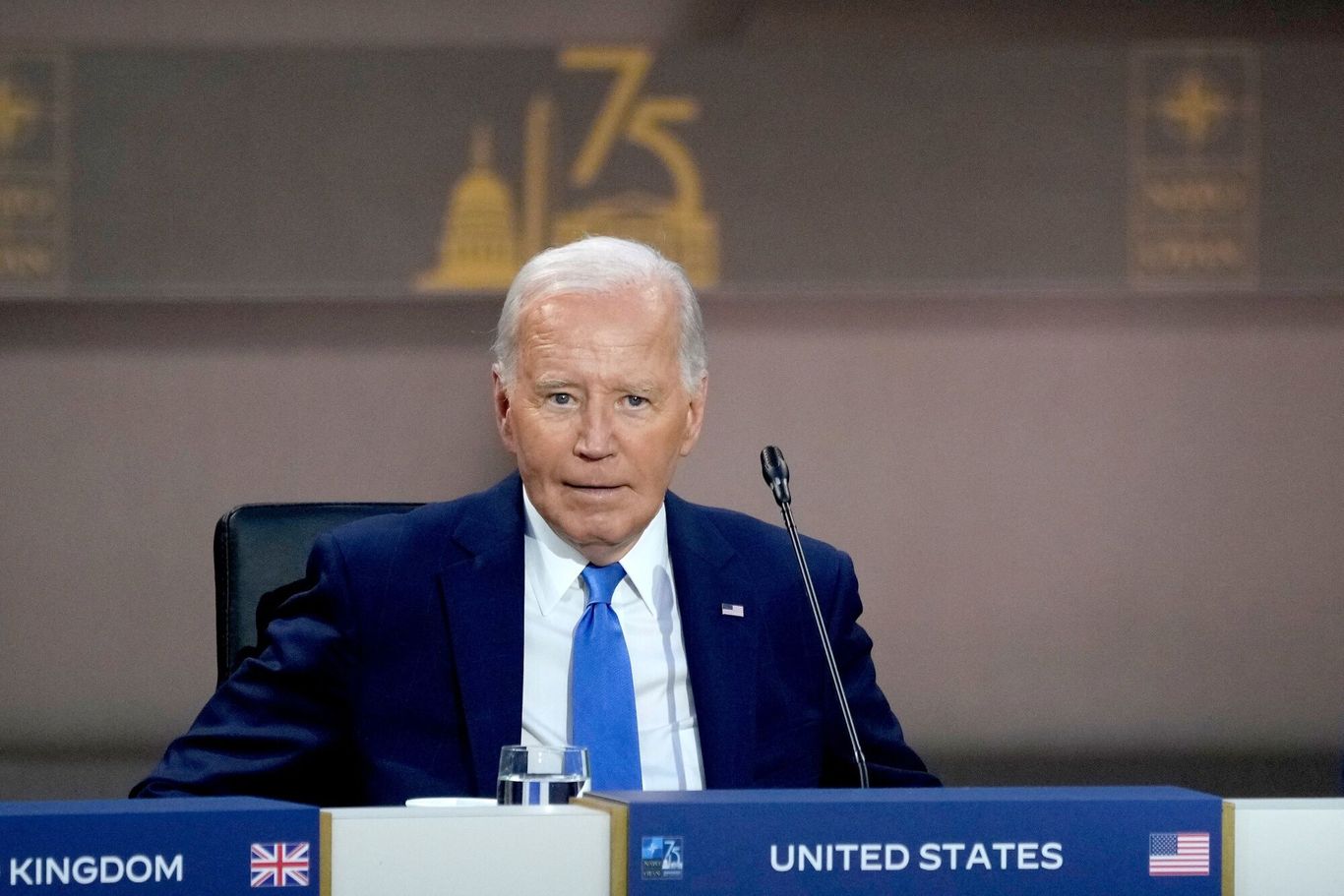Politics
Political Turmoil: Calls Increase for Biden to Withdraw from 2024 Race

In a turbulent turn of events for President Joe Biden, several Democratic lawmakers have publicly advocated for him to step down from his 2024 re-election campaign. This growing chorus of dissent comes amid concerns over his viability after a series of political stumbles, including a challenging performance in a recent debate against former President Donald Trump.
As Biden isolates at his beach residence in Rehoboth Beach, Delaware, recovering from COVID-19, he has nevertheless stated his intent to resume campaigning soon. His campaign’s determination continues to be tested, however, as dissenting voices emerge from within his own party, suggesting the prospect of a younger candidate may be necessary for a successful election bid.
Among the most vocal critics is New Mexico Senator Martin Heinrich, who emphasized that a decision to pass the baton could solidify Biden’s legacy and facilitate support for a candidate capable of taking down Trump in the upcoming election. The sentiment expressed by Heinrich is echoed by a group of prominent figures from the Congressional Black and Hispanic Caucuses, who noted that Biden’s age and health concerns could impair what should be a winning campaign.
Monday saw more lawmakers adding their voices to the growing list calling on Biden to consider withdrawing. Representatives Jared Huffman, Marc Veasey, Chuy Garcia, and Mark Pocan lamented that the reality of widespread anxieties surrounding Biden’s age must be openly addressed to secure a more favorable political landscape for the Democrats.
Additional congressional members have also come forward with similar sentiments, including Reps. Zoe Lofgren, Greg Landsman, and Jim Costa among others, who jointly urged Biden to reevaluate his position. These sentiments come amid whispers that other influential Democratic leaders have been privately expressing their concerns regarding his candidacy and electability potential.
Despite facing pressure to withdraw, Biden’s campaign chair, Jen O’Malley Dillon, has reiterated the president’s commitment to running for a second term. She noted that grassroots support for Biden remains strong, highlighting voter enthusiasm as a crucial counter to the criticisms suggesting he should step aside.
Although recent developments have revealed vulnerabilities in Biden’s re-election strategy, a coalition of Democratic supporters continues to rally behind him. The political arm of the Congressional Hispanic Caucus, BOLD PAC, reaffirmed its endorsement of Biden, maintaining that Latino voters could play a pivotal role in determining electoral outcomes across key battlegrounds.
With the Democratic National Convention approaching on August 19, party leaders are swiftly navigating the complexities of this unfolding political saga. The DNC’s rules committee is expected to discuss the virtual roll call vote which would endorse Biden as the official nominee, ensuring procedural compliance with upcoming state ballot deadlines.
If Biden were indeed to withdraw, speculation continues about who could succeed him as the party’s nominee. Vice President Kamala Harris remains a favored option, alongside a few other notable figures within the party, all of whom have publicly demonstrated their unwavering support for Biden amid the ongoing turbulence.
While Biden publicly reassures his supporters of his intention to campaign vigorously against Trump, the stark reality of diminishing endorsements from prominent donors, including those from Hollywood, paints an increasingly precarious picture for his campaign. The political landscape grows ever more competitive, with calls from the party’s ranks signaling a potential crisis of confidence in the president’s candidacy.
As Biden grapples with these challenges, he utilizes social media platforms to articulate his ongoing commitment to the campaign, indicating that he plans to leverage his past presidency achievements to bolster his appeal amidst opposition. His statements reflect an understanding that maintaining party unity during this turbulent period is crucial for overcoming not only potential intraparty divisions but also the threat posed by the Republican nominee.
As the ramifications of Biden’s actions and decisions unfold in the impending weeks, all eyes will be tuned to the Democratic National Convention. The unity of the party will be put to the test, even as a faction of lawmakers articulates their concerns openly. Biden’s response to the pressure from his own party could shape the trajectory of the Democratic campaign heading into the critical election period.












